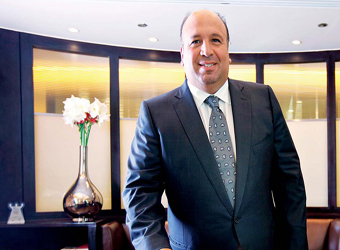Egypt’s investment bank Citadel Capital (CCAP.CA) intends to inject $2.5 billion in a projected oil refinery in east Africa’s third-largest economy Uganda
Egypt’s Citadel Capital could be an investor in Uganda’s proposed $2.5 billion oil refinery project, the Egyptian private equity firm’s managing director said.
Uganda, east Africa’s third-largest economy, has said it intends to build a refinery once it starts producing crude oil, and it recently raised its estimated oil reserves to 3.5 billion barrels from 2.5 billion barrels.
Citadel secured $3.7 billion in financing for an Egyptian petroleum refinery project in June, and the firm’s managing director Karim Sadek said the company is now looking at refining potential deals in sub-Saharan Africa, including Uganda.
“Yes, we would be interested,” Sadek told Reuters in Nairobi, where he addressed a business club. “We know very well what’s happening on the Ugandan oil side and we’ve had discussions before.”
He said Citadel never invests in projects without a local partner, and he would not be drawn on the size of the investment the private equity group might make since the refinery plans are still in their infancy.
Uganda has outlined plans to build a refinery in Hoima, about 220 km west of its capital Kampala, and in July the government said it was aiming to take up to a 40 per cent stake in the plant with a private investor acquiring the remaining 60 per cent.
Uganda says it wants a facility with a maximum output of 120,000 barrels per day before production can commence, and that it intends to develop the project in phases, starting with a refining capacity of 20,000 barrels.
However, UK oil and gas explorer Tullow Oil, which operates in Uganda and would have its own output refined there, sees a plant with capacity of 60,000 as more viable to attract investors.
Sadek, who is confident the two sides will reach a compromise, said a major impetus behind Uganda’s desire to develop its own refining capabilities is an inadequate transport infrastructure.
Uganda currently imports all its fuel, and its policy to become self sufficient was given added urgency by extreme shortages suffered when transport routes from the Indian Ocean were blocked during post-election violence in Kenya in 2008.
Citadel, which has $9.5 billion in investments across Middle East and Africa, is already present in Uganda as the majority owner of Rift Valley Railways (RVR), the track operator of the Kenya-Uganda railway line, which stretches 930km from the Indian Ocean port of Mombasa to Kampala.
Sadek said RVR hopes to start refurbishing a northern branch of Uganda’s railways which has been derelict for more than 25 years and passes around 90km from the South Sudanese border, compared with currently useable lines nearly 500km from the main crossing into South Sudan.
“(The refurbishment is) a game changer for transport efficiencies for South Sudan because today South Sudan either trucks all the way from Mombasa or from the end of the rail, wherever that is,” he said.
“It will have a huge impact on costs of everything.”
Source: Reuters


